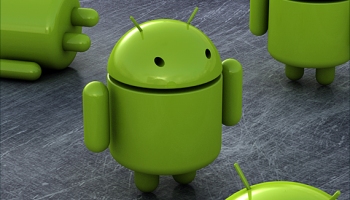CES 2014: Intel, AMD To Port Android Onto Windows Machines

Intel and AMD announce initiatives to bring Android to Window devices, with no rebooting required
Users with AMD-powered devices running Windows 7 or 8 will be able to run an Android interface whether in a window on the device’s desktop or in a full-screen mode. Users will be able to employ the settings, configurations and customisations they have on their Android-based smartphones and tablets, have access to apps in the Google Play store and be able to access files stored within the Windows file system while working in the Android environment.
 AMD is simply giving users want they want, according to Clarice Simmons, senior marketing manager at AMD. Currently, Android is found on 52.2 percent of mobile devices in the US market, and more than 80 percent of mobile phones worldwide. Meanwhile, Windows is run in more than 80 percent of desktop PCs.
AMD is simply giving users want they want, according to Clarice Simmons, senior marketing manager at AMD. Currently, Android is found on 52.2 percent of mobile devices in the US market, and more than 80 percent of mobile phones worldwide. Meanwhile, Windows is run in more than 80 percent of desktop PCs.
Mind the Gap
“So what to do in a world where more everyday consumers rely on multiple platforms: a Windows PC at home, a second on their desk in the office or one in the laptop bag on their shoulder as they board a plane; an Android phone on the go and maybe a similar Android-based tablet as they sit on the couch,” Simmons wrote in a post on the AMD blog site. “One obvious solution is to eliminate the gap between Windows and Android – give the people their favourite game app on their desktop right next to Microsoft Office!”
Roger Kay, principal analyst with Endpoint Technologies Associates, said he’s reserving judgement on the initiatives from Intel and AMD until the messaging and the demand for such capabilities become clearer and systems begin rolling out. Kay told eWEEK he generally understands what the chip makers are trying to do, but that he doesn’t generally support the idea of multi-OS systems. There are always concerns, such as what happens when one OS is upgraded? Would that negatively affect how it works with the other OS?
In addition, the chip makers, OS vendors and OEMs need to make sure that everything in the systems and between the operating systems works well, from the messaging to the operation.
“It sounds a little like a kludge, and it would be experienced as a kludge if any of it doesn’t work right,” he said.
Can you remember what was hot at CES 2013? Take our quiz!
Originally published on eWeek.